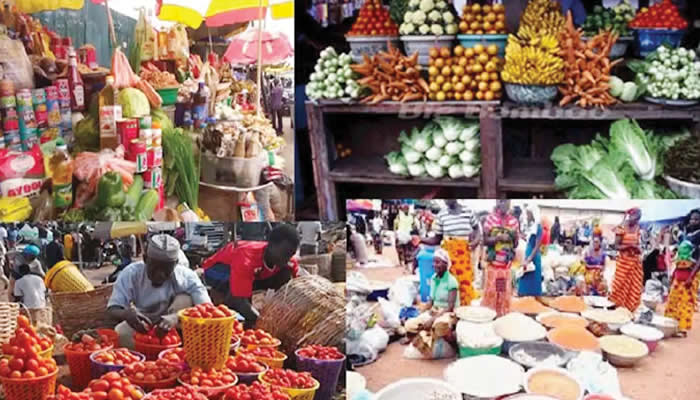It is not just insecurity and scarcity of commodities that are responsible for persistent hike in the prices of commodities, particularly food items. The development is also compounded by a conspiracy at the market that confers undue powers on some interest groups who then determine the price rates and the people who would be admitted into the market for commerce.
This was revealed by Dr. Adamu Abdullahi, the acting executive vice chairman of the Federal Competition and Consumer Protection Commission, FCCPC on Thursday in Abuja. Abdullahi was speaking at a one-day webinar with Non-governmental Organisations, NGOs and Consumer Protection Groups, CPGs. The webinar has the theme: COLLABORATION FOR COMPETITION AND CONSUMER PROTECTION. He pointed accusing finger at the market associations in the 36 states and the federal capital territory, FCT.
While not denying the impact of insecurity in the production of food, Abdullahi said that some individuals in the market have become dictators in the supply and distribution chain of food products into the market.
He said, “Every market now has associations for different products. Farmers who are not members of the association are prevented from entering the market which defeats the essence of a market. These associations have evolved into cartels and they now decide the price of food products.” Perhaps the FCC PC would not have minded if those associations limit their activities to legal protection of the rights and interests of members. The challenge is that their activities impact negatively on the society. They do not just fix prices, somewhat arbitrarily, they have become a cartel running the markets like dictators. Dr. Abdullahi said further, “But they go beyond price fixing. Now they decide the rate of food supply into the market to create scarcity and inflate the price of available products.
The FCC PC boss regrets that his commission has no powers to sanction any erring group in this respect. This, according to him, is because “We are not a price regulatory agency, but there are sharp practices in the market that we have to ensure they don’t occur. Issues like price gauging and cartel must be addressed.”
He said, “These are issues we have found out and have taken action against. We have warned the Abuja Market Management and the Chairman of the Local government on the association practices which are against the law.”
But Dr. Abdullahi would not shy away from responsibilities that the government must own up to and find ways of making amend. He said his Commission did a market survey in conjunction with the National Consumer Advocacy Group which showed that the increase in prices of food was also as a result of faulty vehicles, and a hike in diesel prices.
Even at that, those challenges are compounded by taxes including some unofficial charges that traders are forced to pay while taking their products to the markets. Hear him: “Farmers provide incentives above N100,000 for various payments at checkpoint, local government along the way before their product gets to their destination for sale.”
As if that is not enough trouble, he said, “Most of the Vehicles used for transportation are all dilapidated and along the way, they may have breakdowns. For instance, a faulty vehicle transporting perishables like tomatoes if broken down will lead to waste on the product. A farmer transporting the next batch will increase his price to cover up for the earlier loss encountered.”
Again, he was forthright enough to admit certain failings in the official circle when he said, “The issues of the price of fueling and diesel are affecting products. To make matters worse there are no standard roads leading to farms or small markets. So, farmers have to use a more expensive product which is petrol to transport the goods in smaller vehicles to the small market.
“When they get to the small market, the foods are then moved to diesel trucks, and trailers to transport the products to the urban markets and beyond.” He, however, said that the current administration was working on ways of alleviating those challenges. One of them is the problem of transportation.
Speaking on the federal government’s plans to address the cost of transportation, Abdullahi said through the implementation of Compressed Natural Gas (CNG), traders and farmers would save at least 60 per cent of the cost of fueling the vehicles used to transport their goods.
Now, if he says that his Commission has no power to enforce price control, does it mean that Nigerians will perpetually be left at the mercy of the cartel? Abdullahi said the government would not fold its arms. According to him, the Commission will remain committed to the control of market politics and price gauging.

